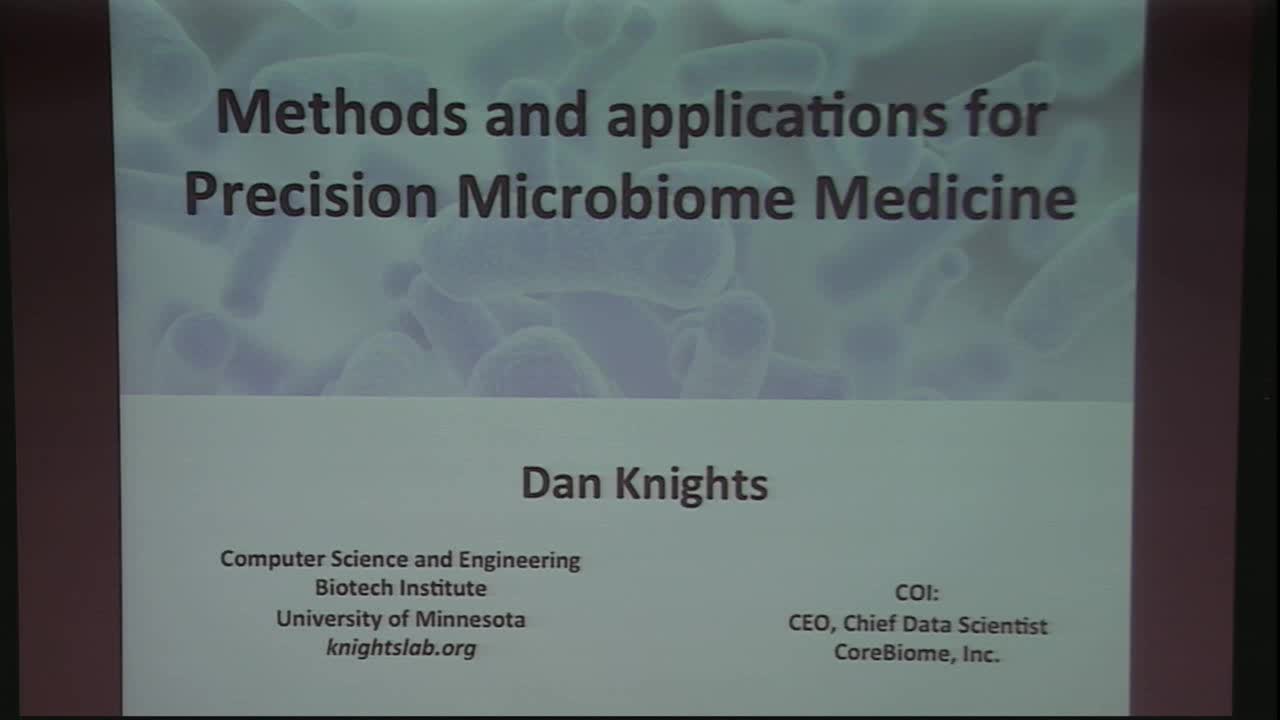Methods and Applications for Precision Microbiome Quantitation
Presenter
February 28, 2017
Abstract
Microbiomes are large and complex, requiring analysis of massive quantities of microbial DNA from biological samples. The lack of precise, reproducible, and affordable methods is limiting progress in identifying specific disease and modulatory mechanisms in microbiome research. Unfortunately, clinical microbiome researchers currently must choose between having accurate data, via deep shotgun sequencing, or having larger sample sizes, via affordable but inaccurate marker gene sequencing. Using real examples in clinical microbiome studies, this talk shows that shallow shotgun sequencing combined with effective informatics methods will enable researchers to measure the precise taxonomic and functional repertoire of the microbiome at a small fraction of the current cost. It then shows example applications of improved microbiome methods to several human and primate microbiome studies.
Dan Knights develops computational methods for doing precision medicine with gut bacteria, and he applies those methods to study human disease. Trillions of bacteria live in our guts, protecting us from infection and aiding our digestion, yet these communities are so complex that we need advanced computational methods to study them. In his multidisciplinary research lab Dan combines expertise in data mining and biology to advance detection and treatment of microbiome disruption in obesity, autoimmune, and infectious diseases. Dan received his PhD in Computer Science from the University of Colorado, followed by a post-doctoral fellowship at Harvard Medical School.
